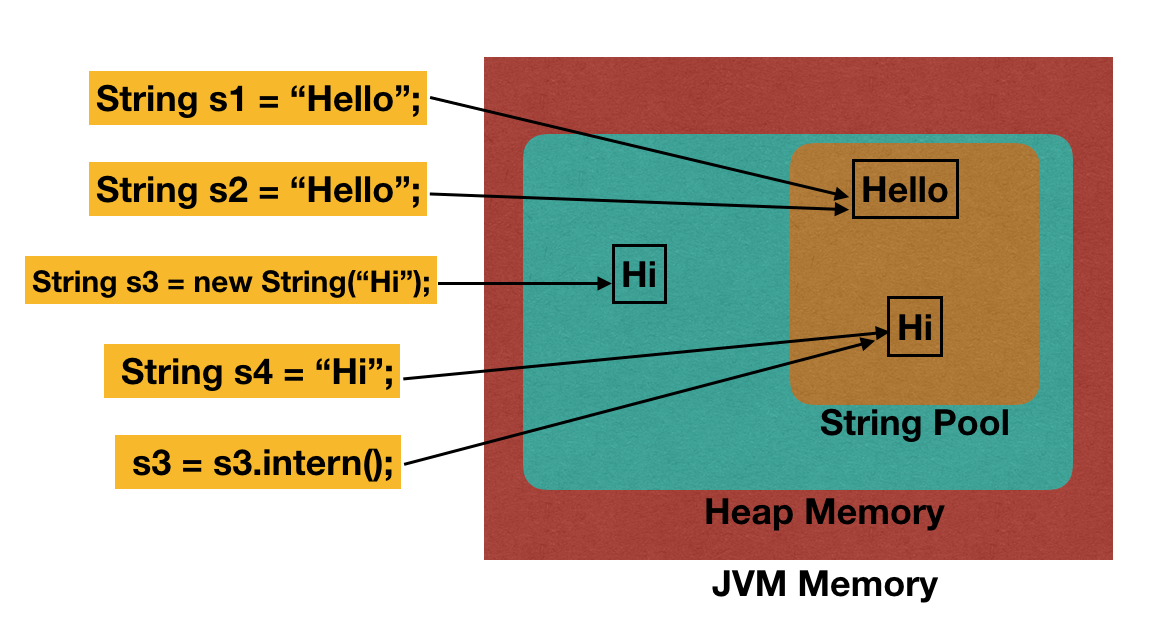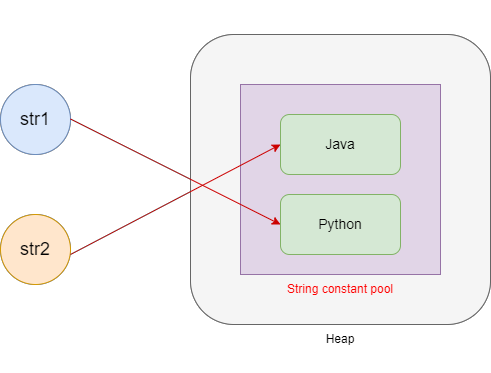Why Are Strings Immutable in Java? Comprehending the Core Concepts
Why Are Strings Immutable in Java? Comprehending the Core Concepts
Blog Article
Checking Out the Advantages of Immutable Strings in Modern Shows Paradigms
In the realm of modern-day programs paradigms, the concept of immutable strings stands as a cornerstone of robust software application advancement. The advantages they offer exceed mere benefit; they essentially change the method data is dealt with within applications. By taking on unalterable strings, programmers can make certain improved data stability, enhanced thread safety and security, streamlined debugging procedures, enhanced protection steps, and efficient efficiency optimization. These advantages act as a testimony to the profound influence that accepting immutability can have on the reliability and effectiveness of software systems.
Enhanced Data Honesty

By preventing the adjustment of string items, immutability eliminates the danger of unintentional modifications to the information they hold. This not just boosts the safety of the info but additionally boosts the reliability of the code that depends on these strings.
Immutability also supports much safer multithreading environments, as concurrent accessibility to unalterable strings does not pose the threat of data corruption through synchronised modifications. This building streamlines the process of dealing with strings in parallel programs scenarios.
Fundamentally, immutability serves as a protective shield around the information saved within strings, enhancing their honesty by making certain that once defined, their values stay the same throughout the program's execution.

Improved Thread Security
Immutable strings enhance the thread safety and security of programs by guaranteeing that when a string object is produced, its value can not be modified. This building gets rid of the threat of simultaneous threads trying to customize the same string simultaneously, which could cause data corruption or inconsistent states in the program - Why are strings immutable in Java?. In a multi-threaded setting, where several threads accessibility and adjust information concurrently, the immutability of strings provides a degree of security by assuring that the data continues to be unmodified throughout its lifecycle
Simplified Debugging Procedures
Provided the boosted string security facilitated by immutable strings, a considerable advantage develops in the realm of streamlined debugging procedures. Immutable strings, when produced, can not be altered, making it much easier to map the circulation of information and identify the resource of bugs in a program. This immutability ensures that strings remain constant throughout the execution of the program, decreasing the probability of unforeseen modifications that might bring about mistakes.
When debugging with mutable strings, programmers typically come across problems where a string's worth is customized accidentally, making it testing to pinpoint the origin of an insect. Nonetheless, with immutable strings, the information remains unchanged, permitting designers to concentrate on examining the real reasoning of the code as opposed to tracking down where and when a string was modified inaccurately.
In addition, immutable strings streamline the debugging process by allowing easier reproduction of pests. Because immutable strings do not alter state, programmers can recreate and research insects more effectively, resulting in quicker recognition and resolution Learn More Here of problems within the codebase. This streamlined debugging process eventually adds to higher software application quality and enhanced general growth effectiveness.

Raised Protection Actions
Enhancing data defense and strengthening system honesty, the usage of immutable strings in software application applications contributes significantly to enhanced safety and security actions. Unalterable strings, as soon as developed, can not be modified, offering a critical defense against destructive meddling or unauthorized access. By guaranteeing that sensitive information kept in strings stays unaltered throughout the program's implementation, the threat of information violations or shot attacks is substantially reduced. Why are strings immutable in Java?. Immutable strings also play an essential duty site here in avoiding usual protection vulnerabilities such as barrier overflows and SQL injection strikes, as attempts to control string data at runtime are inherently restricted.
Additionally, the immutability of strings enhances the predictability of program habits, making it easier to verify inputs and avoid unexpected modifications that might jeopardize security. This predictability simplifies the process of bookkeeping and verifying code, making it possible for developers to identify prospective security technicalities better. Generally, including immutable strings into software application growth practices not just improves the toughness and dependability of applications however additionally enhances their strength against safety risks.
Efficient Performance Optimization
Structure upon the structure of enhanced security measures attained with the use of unalterable strings, a crucial aspect to consider in software application growth is effective performance optimization. When handling mutable strings, operations like concatenation or substring creation often result in the creation of brand-new string objects, leading to memory expenses and increased processing time. Nonetheless, with unalterable strings, these operations can be optimized to enhance performance. By enabling strings to stay stable and continuous, immutable strings promote much better memory administration and caching opportunities, navigate here ultimately boosting the total efficiency of the software.
Given that immutable strings can not be modified once created, they can be shared throughout threads without the danger of unforeseen changes, minimizing the demand for synchronization systems and enhancing concurrency. Immutable strings streamline debugging processes as developers can trust that a string's worth will certainly continue to be regular throughout the program's execution, getting rid of prospective mistakes caused by mutable state modifications.
Verdict
Finally, the advantages of using unalterable strings in modern programs paradigms can not be overstated. Enhanced data honesty, boosted string security, simplified debugging processes, boosted security measures, and efficient efficiency optimization all add to the general efficiency of shows jobs. By integrating unalterable strings right into programs techniques, developers can gain from a more durable and trusted codebase.
Immutability, a key feature of strings in programming languages such as Java and Python, ensures that as soon as a string item is developed, it can not be changed or changed.Immutable strings boost the string safety of programs by making certain that as soon as a string item is created, its worth can not be customized. Immutable strings additionally play a crucial function in preventing usual safety and security vulnerabilities such as barrier overflows and SQL injection attacks, as efforts to control string data at runtime are inherently limited.
By enabling strings to continue to be constant and unchangeable, unalterable strings assist in much better memory administration and caching opportunities, eventually increasing the overall performance of the software program.
Unalterable strings streamline debugging procedures as developers can rely on that a string's value will certainly stay regular throughout the program's implementation, removing potential errors created by mutable state modifications.
Report this page